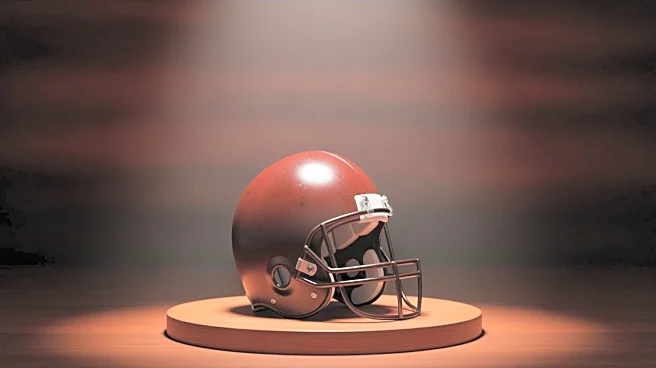What is the story about?
What's Happening?
The sequel to the iconic mockumentary 'This Is Spinal Tap,' titled 'Spinal Tap II: The End Continues,' revisits the fictional English metal band Spinal Tap. Directed by Rob Reiner, the film brings back the original cast, including Christopher Guest, Michael McKean, and Harry Shearer. The plot centers around the band's final concert, a contractual obligation following a mysterious fallout between band members Nigel and David. The film explores the band's attempt to reunite and prepare for their last performance, with Nigel now a cheesemonger, David composing music for podcasts, and Derek running a glue museum. The film features various cameos and comedic elements, though it diverges from the original's satirical edge.
Why It's Important?
The release of 'Spinal Tap II: The End Continues' highlights the enduring appeal of the original film and its impact on rock culture satire. The sequel attempts to capture the nostalgia of classic rock while addressing contemporary issues within the music industry. However, the film's approach to portraying the band as beloved rock icons contrasts with the original's depiction of them as underdogs, potentially altering the audience's perception. This shift reflects broader changes in how classic rock is viewed in modern culture, where nostalgia often overshadows critical satire.
What's Next?
As 'Spinal Tap II: The End Continues' reaches audiences, reactions from both fans of the original and new viewers will shape its legacy. The film's reception may influence future projects that aim to satirize or pay homage to classic rock culture. Additionally, the film's success or failure could impact the careers of its creators and cast, potentially leading to more reunions or similar projects in the entertainment industry.
Beyond the Headlines
The film's portrayal of Spinal Tap as rock royalty raises questions about the nature of satire and nostalgia in modern media. By focusing on the band's popularity rather than their flaws, the sequel may inadvertently contribute to the mythologizing of classic rock, rather than critiquing it. This shift could reflect broader cultural trends where nostalgia is commodified, potentially diminishing the critical edge that defined the original film.
















